Lebanon’s copper and brass trade continues to face challenges in today’s world. Luckily, some artisans are still working to keep the tradition alive. With the support of the Lebanese Ministry of Tourism, we learn more.
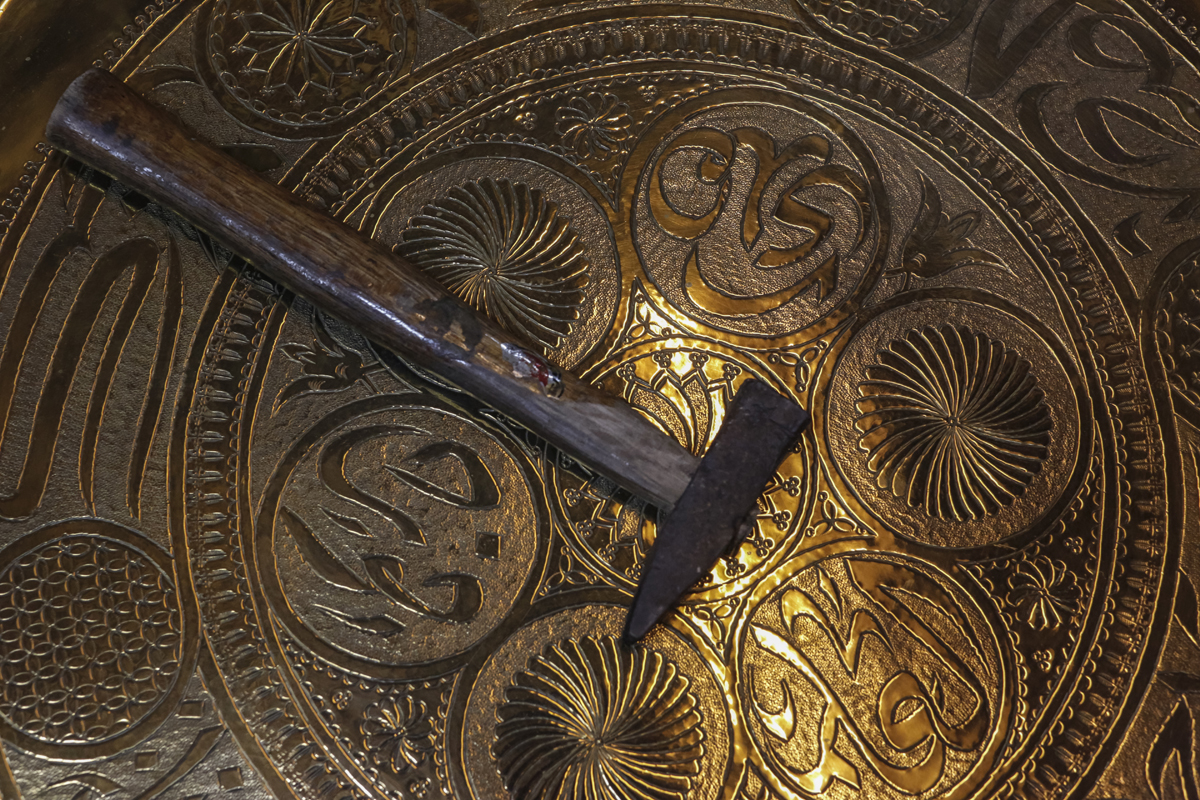
Photos – Sam Tarling
In an old workshop inside Tripoli’s cavernous souk, Osman Tartousy, hammers a brass bowl into shape. “It’s better than disco,” he shouts above the clamor. Now in his 70s, he has been working in that same shop since he was six. “In those days,” he reminisces, “you couldn’t talk when walking down Nahasin Street; the sound of hammers pounding on metal was so loud.”
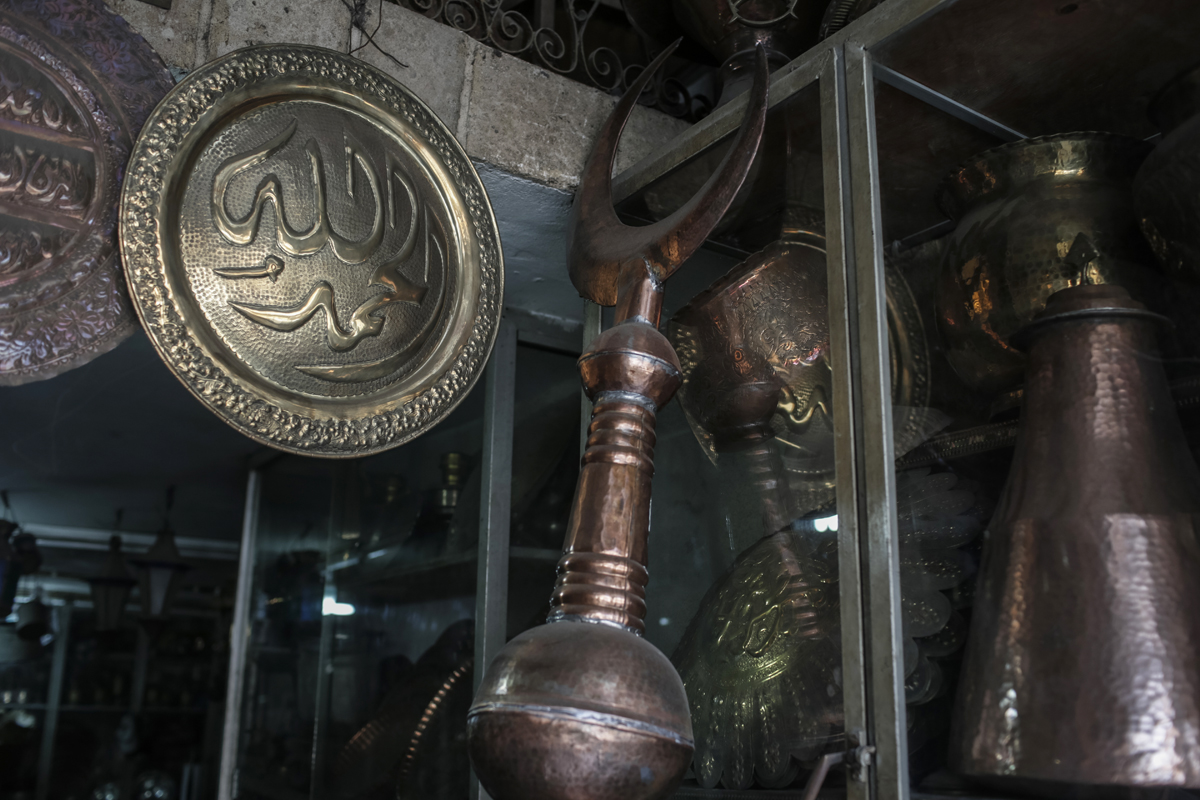 The handmade process for crafting a bowl or plate is the same today as it was hundreds of years ago. The design is drawn or traced onto a polished, flat copper disc imported from India or Africa. The disc is beaten into shape using a hammer and a vertical iron rod, which sticks up from the floor. Once the shape is satisfactory, the pattern is indented using a variety of thick and thin-edged iron pins, which are hammered against the surface with varying degrees of intensity before being polished. An experienced worker can finish a plaque in 30 minutes. The raw copper disc typically costs around LL10,500 and can be sold for upwards of LL30,000.
The handmade process for crafting a bowl or plate is the same today as it was hundreds of years ago. The design is drawn or traced onto a polished, flat copper disc imported from India or Africa. The disc is beaten into shape using a hammer and a vertical iron rod, which sticks up from the floor. Once the shape is satisfactory, the pattern is indented using a variety of thick and thin-edged iron pins, which are hammered against the surface with varying degrees of intensity before being polished. An experienced worker can finish a plaque in 30 minutes. The raw copper disc typically costs around LL10,500 and can be sold for upwards of LL30,000.
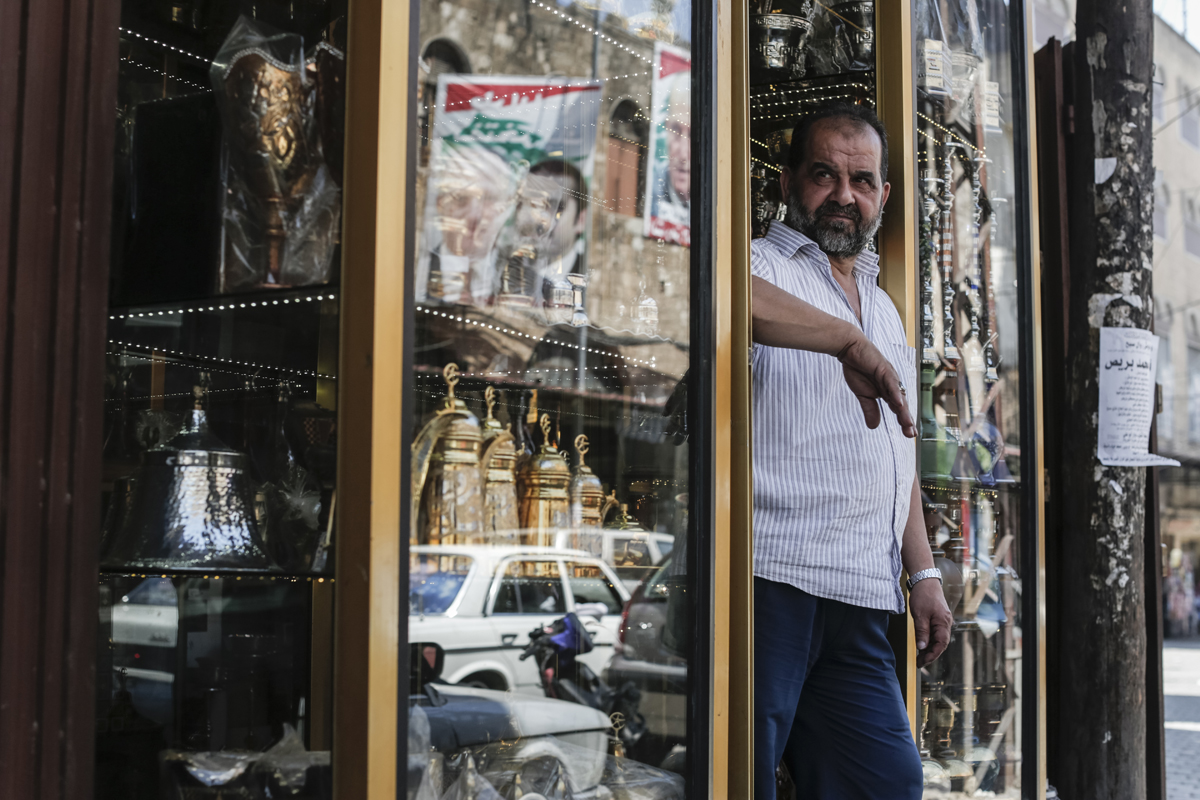 “People come to buy special items in Tripoli because there is no industry in Beirut,” says Amer Tartousy, a wholesaler supplying shops throughout the country. The Tartousy family has a monopoly here; every person working around Nahasin Street, in the old souk, seem to bear the family name.
“People come to buy special items in Tripoli because there is no industry in Beirut,” says Amer Tartousy, a wholesaler supplying shops throughout the country. The Tartousy family has a monopoly here; every person working around Nahasin Street, in the old souk, seem to bear the family name.
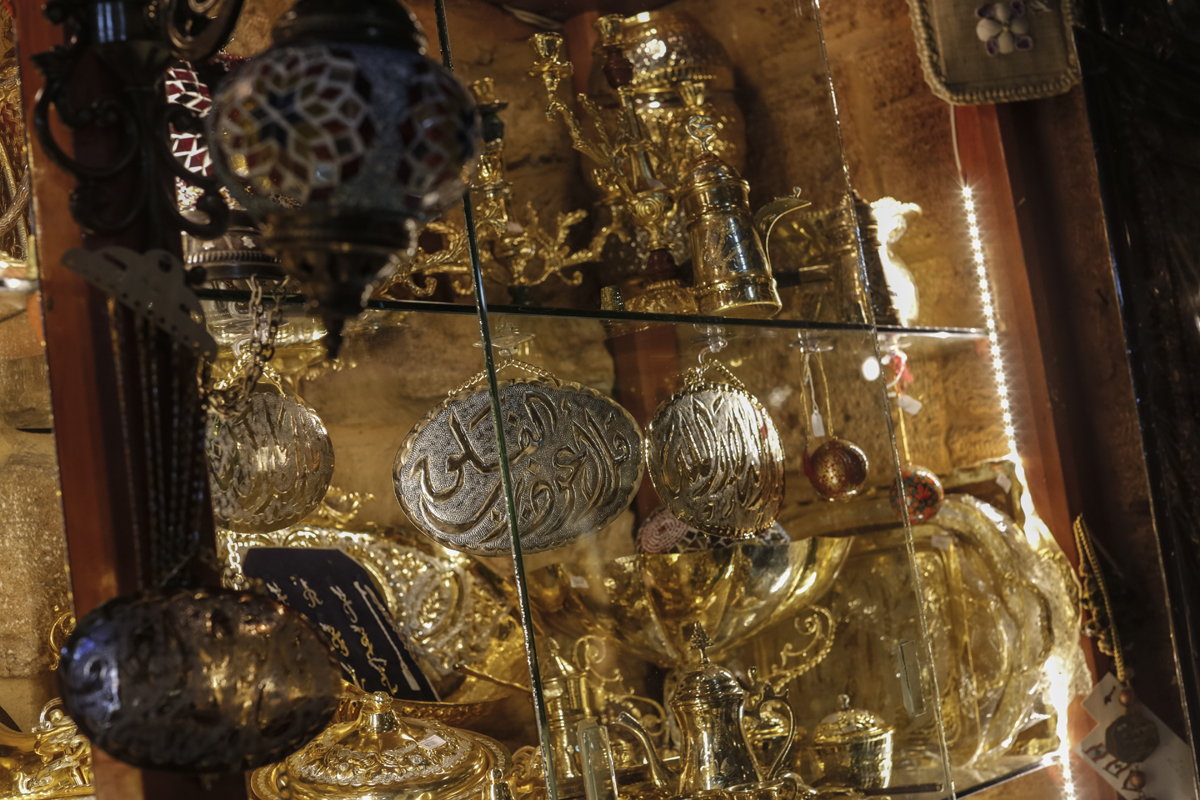
In Beirut’s once-thriving copper district, off the highway in Bourj Hammoud, old men sit outside their shops drinking coffee, watching the world pass by. The artisanal copper and brass trade in Lebanon stretches back centuries, but the industry that once supported families and entire neighborhoods now has a very different face. “The copper trade is a bad business,” says Raffi Karaminassian, who has all but given up on copper. Copper and brass are no longer widely used: the affordability of aluminum and stainless steel, and the scarcity of tourists has affected business.
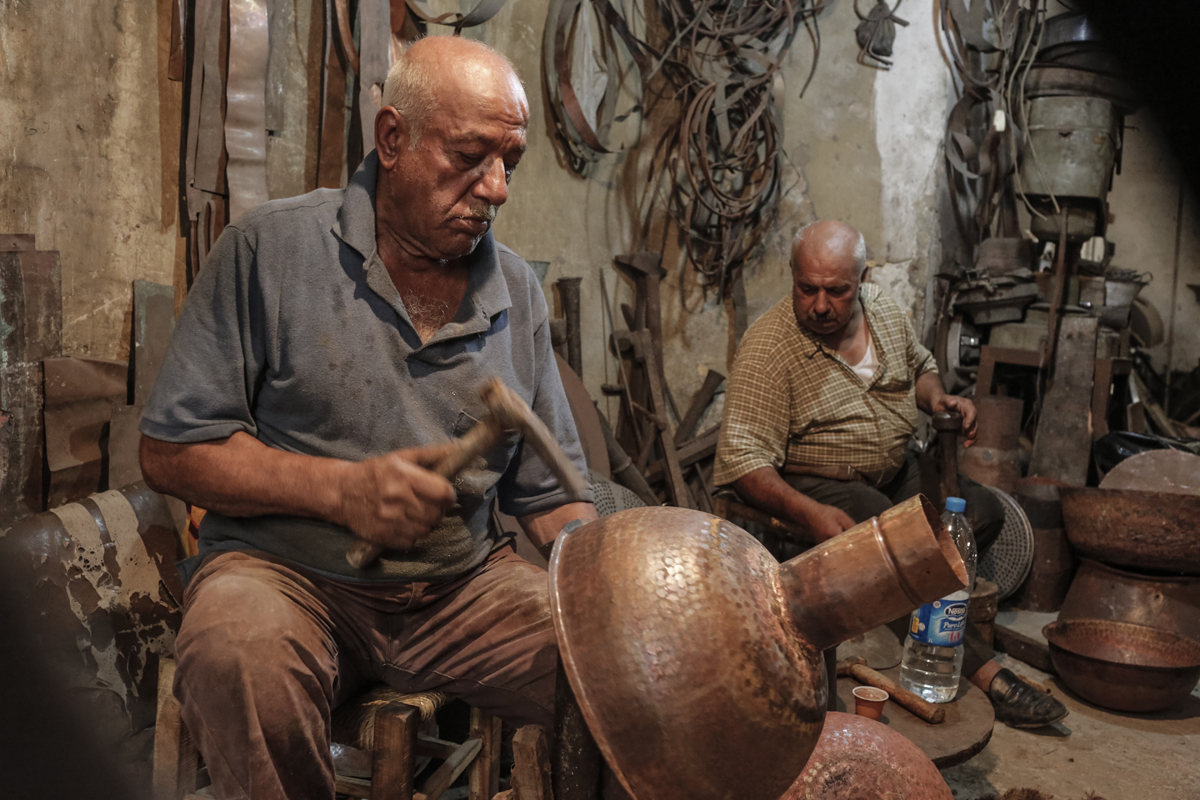 “These days only rich people can afford pots and pans made out of copper or brass,” says Raffi’s father Manuel, in his shop behind Liban Post in Bourj Hammoud, “They cost too much and need to be repaired every few years.” His family business was forced away from the lucrative highway location by property disputes. “Now I have about 20 percent of the customers I used to have,” he says.
“These days only rich people can afford pots and pans made out of copper or brass,” says Raffi’s father Manuel, in his shop behind Liban Post in Bourj Hammoud, “They cost too much and need to be repaired every few years.” His family business was forced away from the lucrative highway location by property disputes. “Now I have about 20 percent of the customers I used to have,” he says.
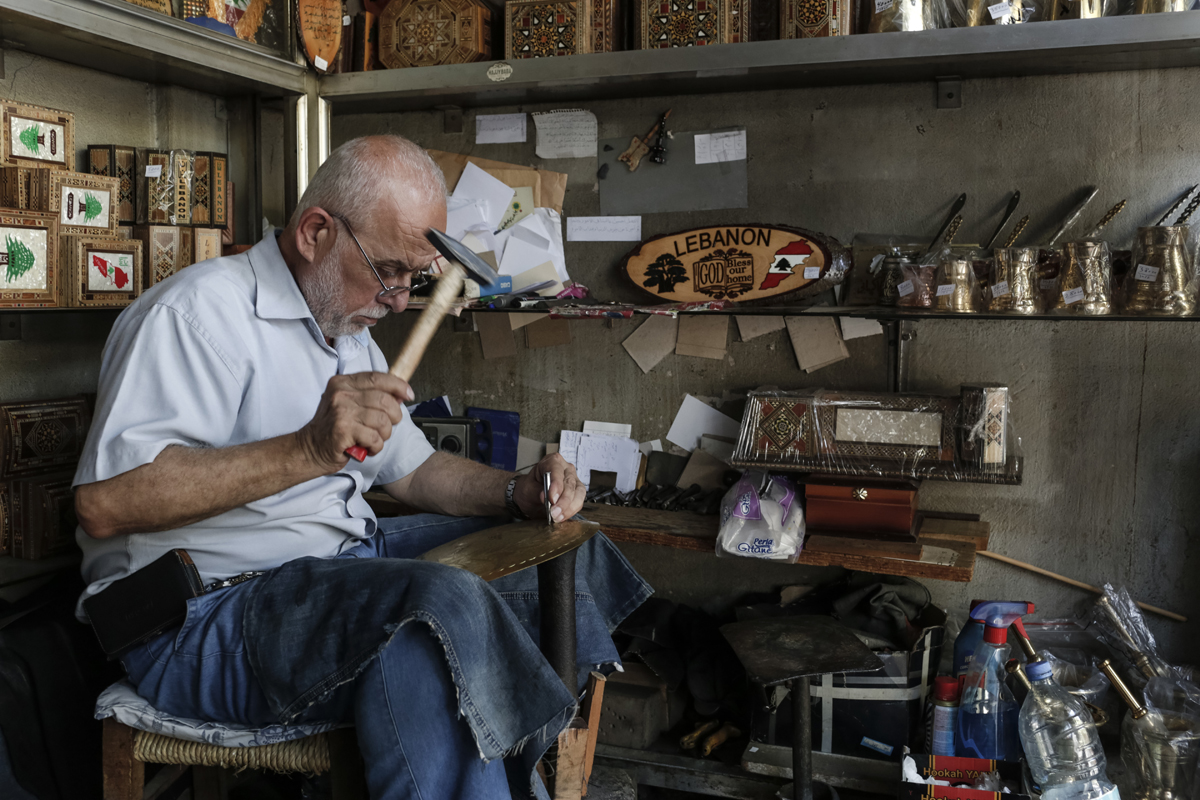 Harry Masrojian had no family connection to copper. Living in Cyprus during the civil war, he gained an enthusiasm for metalwork at an art workshop. He later returned to Lebanon and started his own business in Bourj Hammoud. In his tiny shop, he makes pictures and frames, often with Christian motifs. “People say it’s expensive, so I say ‘Sit down and make it yourself, I will pay you more.’” Nonetheless business is still slow for Masrojian and the shops that he supplies. “All we need is customers,” he says.
Harry Masrojian had no family connection to copper. Living in Cyprus during the civil war, he gained an enthusiasm for metalwork at an art workshop. He later returned to Lebanon and started his own business in Bourj Hammoud. In his tiny shop, he makes pictures and frames, often with Christian motifs. “People say it’s expensive, so I say ‘Sit down and make it yourself, I will pay you more.’” Nonetheless business is still slow for Masrojian and the shops that he supplies. “All we need is customers,” he says.
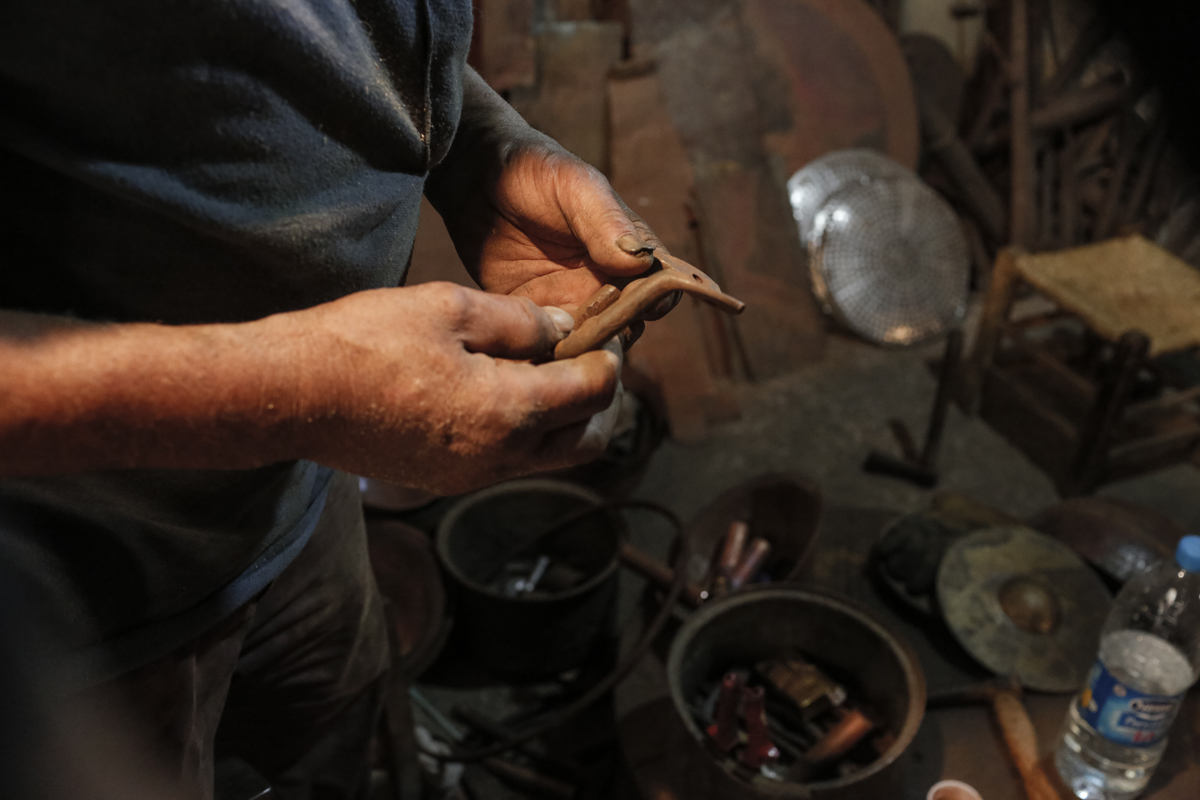
Cheaply produced goods from overseas and a global transfer to more durable and affordable materials means that Lebanon’s copper and brass trade is in a lull, but there is some hope, as Amer points out, “People always like shiny things.”
Where to Buy
- Tripoli: Zouhair El Tartousy | +961 3 384 108
- Beirut: Noubar Eskidijian | +961 1 502718; Elias Najb Mouawad |
+961 1 351343
mot.gov.lb, destinationlebanon.gov.lb
Loading
